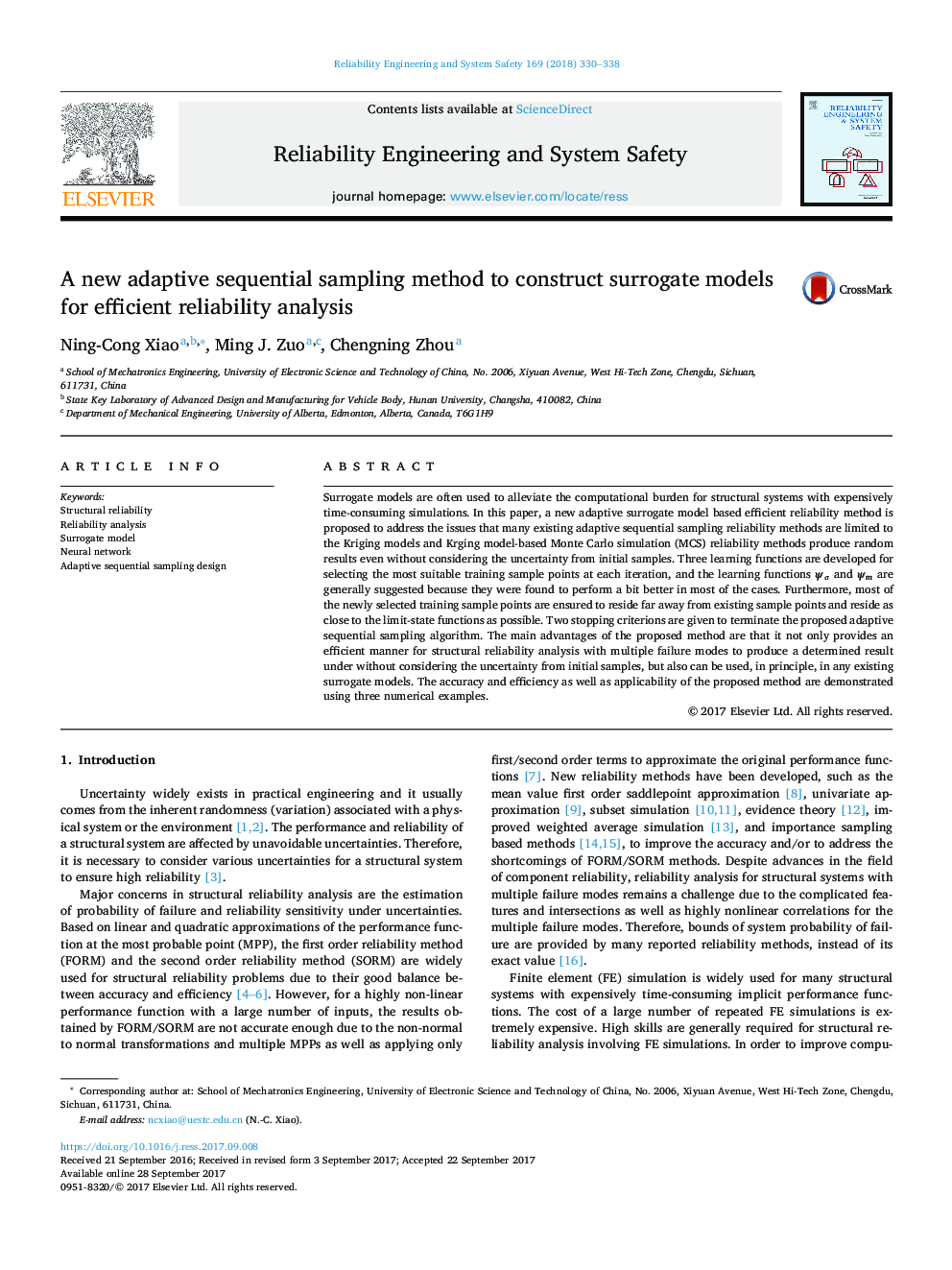| Article ID | Journal | Published Year | Pages | File Type |
|---|---|---|---|---|
| 5019280 | Reliability Engineering & System Safety | 2018 | 9 Pages |
â¢A new adaptive sequential sampling method is proposed for efficient structural reliability analysis.â¢Three learning functions are developed for selecting the most suitable sample point at each iteration.â¢Two stopping criterions are given to terminate the proposed adaptive sequential sampling algorithm.â¢The proposed method can be used, in principle, in any existing surrogate models.
Surrogate models are often used to alleviate the computational burden for structural systems with expensively time-consuming simulations. In this paper, a new adaptive surrogate model based efficient reliability method is proposed to address the issues that many existing adaptive sequential sampling reliability methods are limited to the Kriging models and Krging model-based Monte Carlo simulation (MCS) reliability methods produce random results even without considering the uncertainty from initial samples. Three learning functions are developed for selecting the most suitable training sample points at each iteration, and the learning functions ÏÏ and Ïm are generally suggested because they were found to perform a bit better in most of the cases. Furthermore, most of the newly selected training sample points are ensured to reside far away from existing sample points and reside as close to the limit-state functions as possible. Two stopping criterions are given to terminate the proposed adaptive sequential sampling algorithm. The main advantages of the proposed method are that it not only provides an efficient manner for structural reliability analysis with multiple failure modes to produce a determined result under without considering the uncertainty from initial samples, but also can be used, in principle, in any existing surrogate models. The accuracy and efficiency as well as applicability of the proposed method are demonstrated using three numerical examples.
